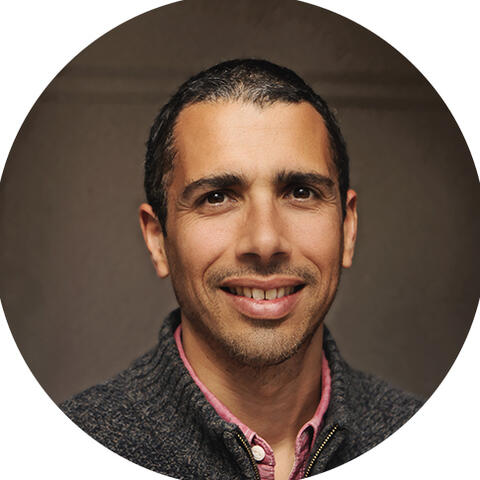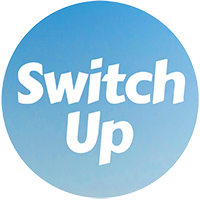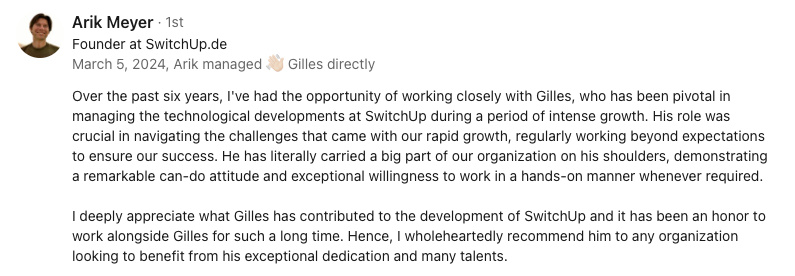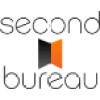Abstract:
The article explores the emotional and psychological challenges faced by individuals who leave high-profile roles in big tech companies to pursue simpler, more independent paths, highlighting how the sudden loss of external validation and constant feedback can trigger self-doubt, identity struggles, and feelings of isolation. It explains why traditional, unstructured journaling may not suit analytical minds common in tech, and instead advocates for guided journaling prompts inspired by cognitive behavioral therapy as practical tools to break negative thought patterns, foster self-compassion, and track personal achievements. The article offers concrete journaling strategies—such as writing from a self-distanced perspective, logging small solo wins, and evolving prompts over time—to help readers rebuild confidence and shift their sense of self-worth from external achievement to personal growth and meaning. Drawing on the experiences of well-known tech leaders and referencing a move to a quieter daily rhythm in Lisbon, the article underscores that redefining self-worth is a gradual, experimental process best supported by consistent self-reflection, with progress marked by subtle shifts in mindset rather than flawless performance.
Stepping off the high-speed train of big tech can feel like landing in a quiet room, where the old buzz of recognition and feedback suddenly fades away. When I left my CTO role in Berlin and landed in Lisbon, the silence in my apartment felt almost physical—a sharp contrast to the constant Slack pings and office chatter I was used to. The first morning, I stared at my coffee, missing the awkward jokes by the espresso machine and wondering if my wins were really mine or just the company’s. I found myself questioning my own relevance and self-worth. If you’ve ever caught yourself missing the busy team chat or wondering if your achievements were really yours, you’re not alone. Sometimes, it makes me feel like I am invisible.
I want to share why doubts pop up after leaving big tech and why solo work makes these doubts feel even louder. I’ll explain why blank-page journaling never worked for my analytical brain, and how structured prompts—borrowed from cognitive behavioral therapy—helped me break negative cycles and rebuild confidence. I’ll give you practical journaling tips I use to spot negative self-talk, build self-compassion, and celebrate progress—even when nobody else is paying attention. There’s also advice on tracking real change as you move from chasing outside approval to finding your own meaning in your work.
Whether you’re adjusting after a high-profile role or building something alone, these tools can help debug your self-doubt and create a mindset that lasts. If you want to move from always aiming for achievement to living with more meaning and ease, you’ll find concrete, practical steps to help make that happen, one journal entry at a time.
Why self-doubt hits tech minimalists
Losing identity after big tech
Leaving a big tech company is a bit like jumping from a moving train—you land, everything is suddenly quiet. The title, the brand, the steady flow of feedback all disappear. Past successes feel far away, and the next big thing isn’t clear. This sudden drop in recognition often left me feeling like I didn’t quite exist anymore, making way for some tough emotions.
The loss of outside validation hits hard. In big teams, praise comes from every direction—peers, managers, company perks. Without that, I started doubting my value. Were my wins really mine, or just part of the crowd? This kind of thinking can take a toll on confidence and mental health.
But this identity limbo is more than just a career hiccup. It can lead to feeling anxious, low, and stuck between the old me and the new me. For tech minimalists, the real trick is to see our own worth outside of those old scoreboards. And things can get even tougher when you start working solo.
Going solo and the fear of fading
When I started working solo, regular feedback was gone. No chat, no manager check-in, no hallway taps on the back. I’d sit down to work and realize nobody’s there to say “good job” or even notice what I’ve done. Motivation drops. Doubts about staying relevant show up more often. Add to that a sense of being cut off from everyone, and things can get heavy.
Isolation is a big risk. As a freelancer or remote tech person, I’ve faced whole days without any real human connection. Loneliness grows. Doubts get louder. With nobody else offering praise, imposter feelings set in fast. How I measure my value starts to shift, sometimes in tricky and uncomfortable ways.
I started questioning not just my skills, but my real worth. The old markers were gone. It’s easy to miss your wins and just focus on what’s missing. The question switches from “look what I did” to “am I doing enough?” With these challenges, finding simple tools to rebuild confidence becomes more than helpful—it’s a must.
Why structured journaling beats blank pages
Science behind guided prompts
For me, looking at a blank journal page is like trying to debug a program with no error message—where do I even start? My analytical brain loves structure, clear goals, and feedback loops. That’s why guided prompts, especially those based on cognitive behavioral therapy, work better for me. Here’s why structured journaling helps:
- Easier to start and maintain
- Helps break negative thought patterns
- Fits analytical, order-loving minds
Prompts that invite me to step back—maybe by writing in the third person or pretending I’m giving advice to a friend—are especially useful. These tricks help break out of endless rumination, letting me see my problem from a new angle. For example, writing, “He is struggling with self-doubt after leaving big tech,” helps me find new solutions easier than, “I feel lost.” The regular habit of journaling with these prompts is just as important as the prompts themselves.
Journaling three to five times a week for ten to twenty minutes can make a real difference in mood and reduce self-doubt. What matters is consistency and using prompts that actually match your struggles. One approach: set a small chunk of time aside each week, and choose prompts that feel right for your situation. Bit by bit, this adds up to a shift in confidence and thinking.
How journaling rewires self-talk
Journaling helps me spot and challenge those negative automatic thoughts that often go unnoticed. Here’s how I use cognitive restructuring, step by step:
- Write down a negative thought
- Weigh evidence for and against it
- Reframe the thought with self-compassion
This process makes my negative beliefs visible so I can start to change them. It also lays the ground for more self-compassion after setbacks.
Prompts focused on self-compassion encourage me to be as kind to myself as I would be to a friend who’s struggling. This helps take away some of the sting from professional shame and builds resilience, so it’s easier to handle mistakes or rough days. Over time, practicing this makes setbacks hurt less and supports a steadier mindset.
Logging achievements and reflecting on strengths is another way journaling changes the way I think. I started a weekly Win-Log after moving to Lisbon, tracking even the smallest progress—like finally fixing my garden shed door or shipping a tiny feature nobody noticed but me. Taking note of my wins—no matter how small—pushes back against the natural habit of focusing only on what went wrong. Bit by bit, this kind of reflection creates a more positive idea of myself and helps me notice progress, even on tough days.
I remember one week after founding my company in Beijing, I felt completely out of my depth. I wrote down every small win, even “survived another investor call without sweating through my shirt.” It sounds silly, but it helped me see I was moving forward, even if the big wins were still far away.
With these basic tools, let’s check out prompts aimed at helping tech minimalists grow confidence and self-worth.
Prompts for debugging self-doubt
The invisible ex-team member
When I left a known tech team, it was normal to feel like my wins had disappeared. My mind kept asking, “Did I actually make a difference, or was it just about my company’s brand?” This feeling of invisibility is a common response—psychology shows that self-doubt often follows close behind the exit from big jobs.
A science-based approach helped me reclaim my story. Using self-distancing and strengths reflection, I learned to tell my own value apart from the old team context. Focusing on my unique skills and perspective, rather than what I left behind, started to build a new sense of self that stands stronger.
Try this: write about a time you felt out of place in your old job. Then, list three specific skills or values you brought that were unique to you. This trick moves your attention from what’s missing to what is truly yours—making your own strengths clearer. Next, let’s tackle the nerves that show up when you launch your own projects.
The solo launch jitters
Launching something solo—a new service, product, or open-source project—can make self-doubt scream. There’s no big-name company at your back, so every mistake or slow start feels more personal. These nerves are normal when praise from outside suddenly vanishes.
A structured prompt can help here, leaning on cognitive restructuring and a focus on solutions. Spot the specific worries and stack them up against real evidence from your experience. That way, you see fears in perspective instead of letting doubts win.
Here’s a prompt to try: What’s the worst outcome if your launch fails? What’s a more likely result, judging by your past? Then, write down one small win from today, even if it’s just fixing a typo. Breaking down fears and logging small wins keeps confidence steady and realistic. Next up: dealing with self-criticism.
The internal coach exercise
When doubts hit, it’s easy to become my own toughest critic. I would never speak to friends the way I sometimes judge myself. This unfair tone makes setbacks feel even heavier.
A prompt can help tap into a kinder, more objective viewpoint. Using self-distancing and self-compassion, I try writing advice to myself as if I am a peer. This small change brings out a gentler, more practical approach.
In your next journaling session: picture a friend in your shoes. What would you honestly tell them about their doubts? Write that advice to yourself. Seeing things as an outsider helps soften self-criticism and makes growth after setbacks easier. Let’s move on to prompts for tracking solo progress.
Logging solo wins and learning
Working alone, it’s easy to overlook the little wins and focus only on unfinished work. Over time, this eats away at confidence and keeps motivation low. Not noticing your own progress is a quick way to feel stuck.
Building a habit of logging wins every week helps train my mind to spot growth and flexibility. This is extra important when team feedback no longer exists.
A prompt to use: List three recent solo wins, no matter how small. For each, write a short paragraph about what this win says about your adaptability or growth. Over time, this creates a collection of proof against self-doubt and builds belief in yourself. Once your prompts are set, it’s time to make journaling a habit that sticks.
Building a routine that works
Finding your rhythm
Keeping up the journaling habit over time is where real benefits appear. Studies say writing three to five times a week for about ten to twenty minutes is good for reducing self-doubt and improving the way you see yourself. Even if the sessions are shorter, regularity is what matters. Routine beats long sessions—short and steady wins here.
Making it part of my daily routine helps me stick with it, especially when things get busy. Change shows up after a month or so of keeping at it, as new habits slowly take the place of old self-criticism. At first it moves slow, but the shift in mindset grows stronger with each entry.
I find it useful to tie journaling to something else I already do—like during morning coffee or before shutting down at night. Connecting journaling to a habit makes it harder to skip. Sometimes, I am thinking, “Do I really need to write again?” but I do it anyway, and it helps.
Evolving your prompts
Journaling prompts aren’t forever. As my career changes, my prompts do too. The ones that worked at the start may need adjustments as new doubts or goals appear. Doing a journal audit now and then keeps things fresh.
A quick journal audit: just flip back through a few months and look for patterns or new themes—like a challenge that keeps repeating or a goal that shifted. Change your prompts to fit what matters now, so your practice always feels relevant.
If a prompt gets stale or doesn’t fit, swap it for something you care about right now. Being flexible keeps journaling from turning into a boring chore. Remember, this is a tool for growth, not a test to ace. Progress, not perfection, is the only goal. Watching your journey over time makes it easier to see your efforts paying off.
Tracking real change
Spotting progress beyond the page
You won’t always hear a bell ring when self-doubt gets better. Change is usually quiet—maybe your inner critic softens or you try something new without overthinking. These shifts mean journaling is working. Some early signs I noticed include:
- Noticing a less harsh inner voice
- Catching myself before I spiral
- Trying something new without big worry
- Not being thrown by small setbacks
I started using the Rosenberg Self-Esteem Scale after leaving my CTO role. I tracked my scores every week, and after a month of consistent journaling, I saw my numbers improve. It was a small but real sign that my mindset was shifting. If you like data, self-assessment tools like the Self-Doubt Scale or Automatic Thoughts Questionnaire give you a way to check in every few weeks. You might see negative thoughts dropping or self-doubt softening.
But you don’t need anything fancy. Sometimes just looking back through your journal and seeing if the tone changes or if patterns shift is enough. The main point is to look for real change, not just hope for it. Reviewing your own writing can make this clear and meaningful.
Moving to self-approval—and away from constant outside praise—means progress is coming from you. This practical, gentle approach keeps your energy focused on growth instead of chasing flawless results. And honestly, sometimes I laugh at my old entries—like the one where I wrote, “Missed the office coffee, but at least my plants are still alive.”
Redefining self-worth for tech minimalists
From achievement to meaning
Letting go of achievement as my self-worth was tough, especially after years in fast, competitive tech jobs. I used to measure myself by titles, reviews, and the size of my team. When I moved from Berlin to Lisbon, all those markers disappeared. At first, I felt lost—like my value had vanished with my business card.
Over time, I realized that self-esteem based on personal values, learning, and acts of kindness lasts longer and keeps me motivated. I started focusing on what actually matters to me: building things that help others, learning new skills, and enjoying small moments—like a walk by the river or a good meal with friends. Instead of relying on titles and reviews, I put value in what I could control and what felt meaningful.
Personalizing my own way of measuring progress became the natural next step. I drew inspiration from my own path, not from big names or company brands.
Personalizing your validation metrics
Self-worth has no single recipe—especially as a tech minimalist finding a new way. For me, it’s about getting satisfaction from my own progress, what I’m learning, and staying close to my core values. I treat this like an experiment, using curiosity and flexibility to adjust as I grow. Strategies like Acceptance and Commitment Therapy invite us to keep checking in, notice where our attention goes, and move forward open to change.
I experiment with different prompts, routines, and ways of tracking. The target isn’t perfection, but rather a friendly and changing relationship with my own mind. Shifting from the noise of big tech to a quieter daily routine in Lisbon, the most meaningful wins come in small, gradual changes—both in how I think and what I do each day. These gentle shifts pile up, making self-validation part of daily life, not a single end goal.
Stepping away from big tech’s steady noise can unsettle your sense of self, but also clears space to rebuild worth that isn’t tied to titles or team chats. Using structured journaling—especially prompts inspired by cognitive behavioral therapy—really helps analytical minds like mine. You can catch negative self-talk, support your own growth, and spot small wins that used to be hidden. Over time, this shifts attention from chasing other people’s praise to finding value in your own progress and growth. The journey isn’t about doing everything flawlessly—it’s about keeping up for yourself, just one journal entry at a time. And if you ever find yourself talking to your journal like it’s an old friend—well, at least it never interrupts.














